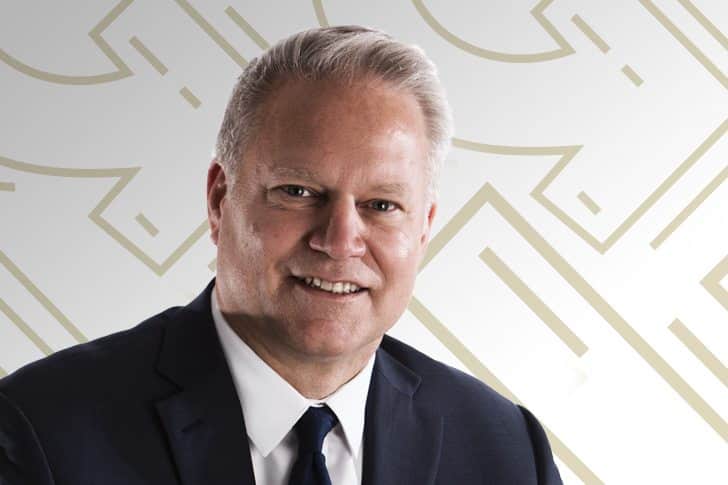From cornfields to boardrooms, Mark Herrmann reflects on his past and what’s led to his stellar career. From this, he shares three tips that help guide his business and management philosophy today.
Some might say that Mark Herrmann was destined for a career in the seed industry, but he didn’t leave his success to fate. He worked for it, dedicated himself to it and is still in active pursuit. Herrmann is a native of northern Illinois, where the soil is black and row after row of corn fills the landscape. For passersby, it was just “more corn.” For Herrmann, it was the beginning of much more. His first job was detasseling corn for a seed corn production plant, where he later ran the cutting and rolling machines.

Herrmann attributes much of his success to having been blessed with great managers and leaders who challenged him and provided the opportunity to stretch and grow. “I’m always learning,” he says. “I believe you can learn something from everyone you meet and everyone you work with — there’s always a takeaway.”
A few of the lessons he’s learned along the way that guide his management philosophy include knowing himself, investing in people and creating a culture that rewards the courageous.
First, Herrmann says it’s important to know who you are, your strengths and your weaknesses.
Know Who You Are, Develop Who You Want to Be
“I have a very driver-type personality,” Herrmann says. “I like to stay focused to get things done and check them off the list, but that isn’t everyone’s approach. Over the years, I have benefited from personal development tools to understand my working style.”
Herrmann believes that it is also important to gain feedback from people you work with to better understand who you are, your strengths and weaknesses, and the impact of your style on others. With this information, you can bridge your own skill gaps and develop who you want to be. Most life coaches operate under the belief that personal development begins with self-awareness.
“Increasing self-awareness of your behaviors is often the first step toward making changes or improvements,” says Joyce Russell, director of the Executive Coaching and Leadership Development Program at the University of Maryland. “Create a specific action plan for your behavioral changes and enlist a friend or coach to provide feedback to help you stick to your plan.”
Dennis Bunde of DeKalb promoted Herrmann to his first management position. “He was a fantastic communicator, personal guide and mentor,” Herrmann says. “He had the people skills I was missing.”
Knowing this, Herrmann works to develop the soft skills to ensure he better connects with people. “I’m more self-aware, especially with how I communicate and engage a broader team with diverse thoughts as we evaluate information and make decisions,” he says.
Herrmann knows that to drive exceptional results he’s got to engage a broader team with diverse perspectives to create change at the company level.
Invest in People
“I believe all success comes from people … getting people behind a common vision with common goals and working together,” he says. “We need the best and brightest people from inside and outside of agriculture.”
The new challenge businesses face is not everyone has those “common experiences,” or values, to lean on.
Last year, AgCareers.com posted nearly 60,000 jobs, yet the U.S. Department of Agriculture says there are only 35,000 agriculture graduates to fill them. Half of these job opportunities will be in management and business, while another 27 percent will be in science, technology, engineering and mathematics.
Herrmann says this means that managers must be willing to take a risk and put people in stretch-roles where they can learn, develop and grow from their experiences. Along these lines, he also says it’s important to shed generational labels and engage all groups.
“Our organization is more than 50 percent millennials,” he says. “The diversity of thought — bringing all generational experiences together — is the fuel for change. The things that drive millennials are different than those that drive Generation X and baby boomers. It’s not about right or wrong; it’s about what motivates and gives each of us our purpose.”
He admits this can be difficult to do, but he says it is very rewarding.
“We need to nurture a culture within our organizations that allows teams and people to envision huge aspirational goals and rewards those who have that level of courage to set such aggressive goals.”
— Mark Herrmann
Reward Audacious Goal Setting
When you strengthen areas of weakness and invest in people, then you can successfully engage a team, shares Hermann, adding, “only then can you create an impact bigger than yourself and achieve success.”
“The world is constantly changing. We have to develop a culture that is comfortable with constantly evaluating our position and how we evolve to be a leader in change,” he says. “It’s important to set a vision and then allow teams space to navigate challenges, invent solutions and excel with projects of a specific outcome.”
As such, facilitating creativity is a must.
“You have to be willing to try new things and to step outside the norm,” he says. “People can’t do that if they are micromanaged. By giving people more room to operate, you deliver higher results, which supports much more rewarding career activity.”
The trick, he says, is knowing the right level to engage at within an organization.
“We need to nurture a culture within our organizations that allows teams and people to envision huge aspirational goals and rewards those who have that level of courage to set such aggressive goals,” he says.
Leaders know that only with talented and motivated human capital can they unlock creativity and innovation in their organizations, adds Trevor Warden, a consultant who helps organizations and people become more effective through finding job clarity, enabling them to be the best they can be and building a motivating environment for high performance.
The challenge, Warden says, is how to connect the two and create a culture of forward thinking and creativity. Companies use a combination of financial incentives, non-financial rewards and promotion opportunities, but Warden says employees of today, more than anything, want to feel a sense of purpose.
“Purpose is needed to get your employees to buy into the ‘why of work,'” he says. “Have a meaningful company mission and purpose. Share the vision and how the employee is contributing to the company goals. Support social incentives and involve employees in a greater cause as a way of creating the why.”
Herrmann says that once you start focusing on audacious goals, it keeps you out of the details and drives you to breakout positions.













